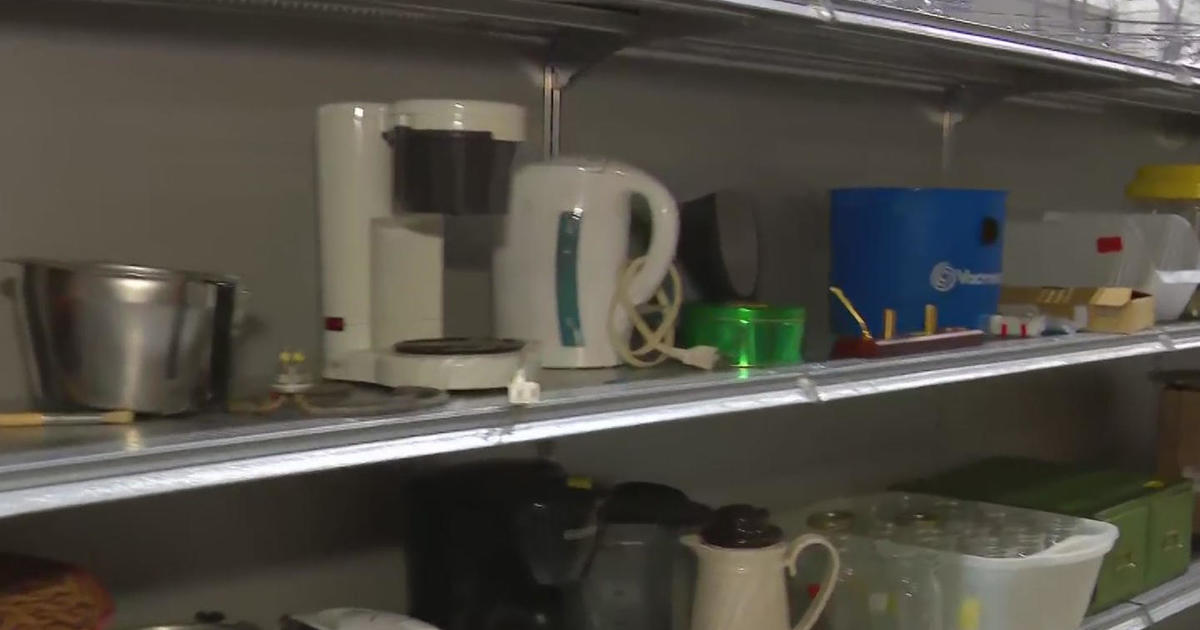'I Was Born In Prison': Mpls. Woman Helps Incarcerated Women Prepare For Life After Release
MINNEAPOLIS (WCCO) -- In Minnesota there are currently 620 women incarcerated in the Shakopee correctional facility. The average sentence for offenders at the prison is 57 months, excluding life sentences and on average, 15 percent of those women are pregnant.
Now one local women is drawing attention to that issue by sharing her personal story.
It's a phrase you don't hear very often -- "I was born in prison."
But for one Minneapolis woman that is her truth. It's the work she's doing inside correctional facilities in her own backyard and across the country that makes Deborah Jiang Stein a Minnesotan to Meet.
Deborah Jiang Stein was born in prison. Her birth mother was a heroin addict and West Virginia Federal prison was the place she called home the first year of her life.
"Being born in prison I don't think it was my problem, I think it was the movement from home to home the shifting between homes, but that time by age 5 I had already had a big world of shifting," said Deborah Jiang Stein.
That all changed when she was adopted by a Seattle couple and in her words had a stable upbringing.
Deborah recalls the moment at age 12 when she first learned of her past.
"What was that moment like for you?" asked Ali Lucia.
"Shocked it spun me out of control, I've been in recovery a long time and I speak a lot about recovery," said Jiang Stein
For years she turned to drugs, violence, and crime to escape. She moved to Minneapolis thinking this would be the place where she would turn her life around.
"I moved to the Midwest and I realized I was the problem and I needed to clean up," she said.
The now mother of two eventually graduated from the University of Minnesota with a degree in Economics and said she's been clean for two decades. However, throughout life she has gotten this reaction from acquaintances and friends
"Oh you don't look like someone who's been in prison," she said. "Well what does that stereotype look like? They don't expect that I would have an education, that I have a passion, that I have a purpose, mine happens to be about working with women in prison."
Ten years ago she started the UnPrison Project. Speaking and giving hope to incarcerated women all over the country, including here at the Minnesota Correctional Facility in Shakopee.
Jiang Stein gave a TED Talk on her experience.
"Everyone I meet wants to make a change, wants to do something different, so they don't come back again," she said.
Her goal is to encourage women inside these walls to build life skills, set goals, and prepare for a successful life upon release.
"I know that I'm using a story that I thought was a stigma and I'm using it to do good for thousands of others," she said.
Deborah plans speak to at least 20 prisons this year.
The state's protocol for pregnant women states that women receive full prenatal care on site and through prenatal medical appointments in the community during their final trimester. Once the baby is delivered, the state follows the community of practice standard which is the mother stays in the hospital with the baby for two days for vaginal delivery, three days for C-Section. Then the new mother is returned to the facility and the baby most often goes to live with a relative, the father, or some other person connected with the offender.
Deborah has a book out called "Prison Baby." It's a memoir about her life.



